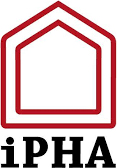Author: Wolfgang Feist in January 2024
1. Introduction and problem definition
As far as the energy transition in Germany is concerned, there is widespread agreement among experts that the heat supply for space heating and hot water should no longer be covered by fossil fuels in the long term. However, which heat generators should be used instead is still the subject of heated debate. The alternatives under discussion include the switch to local and district heating, the substitution of oil and natural gas by alternative fuels on the primary energy side with renewable energy sources (so called E-fuels, e.g. hydrogen) and the increased use of biomass. However, a closer look reveals that none of these approaches mentioned so far will be able to provide an additional contribution of more than 10% of current consumption within around two decades – this is not the subject of this paper, but is easy to understand. What remains is the transition to fully electrical generation of heating and hot water 1) . This is a technology that has been used in individual buildings for decades and has made great progress in recent years thanks to the further development of heat pumps. However, a rough calculation shows (also on the basis of the figures documented in this paper) that direct electric heat generation is out of the question (operating costs are too high, but the total load on the electricity grid is also far too high). Heat pumps will therefore have to be the main source of heat in buildings; we estimate their share to be around 70% in the long term. Against this background, the question arises as to what additional electrical load will occur in the grid due to the operation of this number of heat pumps and how this can be sensibly covered by renewable energy wherever possible. This article deals with and quantifies both of these issues using published load curves for electricity and natural gas.


























